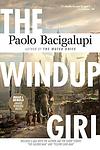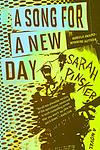The Greatest "Soft Science Fiction, Dystopian, Fiction" Books Since 1990
Click to learn how this list is calculated.
This list represents a comprehensive and trusted collection of the greatest books. Developed through a specialized algorithm, it brings together 300 'best of' book lists to form a definitive guide to the world's most acclaimed books. For those interested in how these books are chosen, additional details can be found on the rankings page.
Genres
Soft science fiction, often abbreviated as "soft sci-fi," is a subgenre of science fiction that emphasizes the social sciences, such as psychology, sociology, and anthropology, over the hard sciences like physics and chemistry. Unlike its counterpart, hard science fiction, which focuses on scientific accuracy and technical detail, soft science fiction explores the human condition, societal changes, and speculative futures through the lens of technology and its impact on society. This genre often delves into themes of ethics, culture, and human relationships, using futuristic settings and speculative technology as a backdrop to examine how these elements interact and affect individuals and societies. Soft science fiction is less concerned with the how and why of technology itself, and more interested in the implications and consequences of technological and societal evolution, making it a rich field for exploring complex characters, speculative societies, and philosophical questions.
Dystopian literature is a genre of speculative fiction that explores social and political structures in a dark, nightmare world. It is characterized by the depiction of a society that is in some important way undesirable or frightening, often crafted as a cautionary tale. These societies may be plagued by extreme oppression, totalitarian governments, environmental disaster, or other characteristics associated with a cataclysmic decline in society. Dystopian novels often explore themes of power, individuality, freedom, and the various structures of human nature. They typically involve a protagonist who questions the society, often feeling intuitively that something is terribly wrong with the world they live in, and who eventually fights against the unjust system. Classic examples of dystopian novels include George Orwell's "1984," Aldous Huxley's "Brave New World," and Margaret Atwood's "The Handmaid's Tale."
Countries
Date Range
Reading Statistics
Click the button below to see how many of these books you've read!
Download
If you're interested in downloading this list as a CSV file for use in a spreadsheet application, you can easily do so by clicking the button below. Please note that to ensure a manageable file size and faster download, the CSV will include details for only the first 500 books.
Download-
1. Never Let Me Go by Kazuo Ishiguro
The novel is a haunting tale of three friends, who grow up together at a seemingly idyllic English boarding school. As they mature, they discover a dark secret about their school and the purpose of their existence, which is to become organ donors for the rest of society. The story is a profound exploration of what it means to be human, the morality of scientific innovation, and the heartbreaking reality of love and loss.
-
2. Cloud Atlas by David Mitchell
This novel is a unique blend of six different stories, each set in a different time and place, spanning from the 19th century South Pacific to a post-apocalyptic future. Each tale is written in a different style, reflecting the time and setting it represents, and they are all connected through shared themes and recurring motifs. The stories are nested within each other, with each interrupted by the next, only to be concluded in the second half of the book. The novel explores themes of predacity, civilization, reincarnation and the eternal recurrence of the same behaviors throughout history.
-
3. The Fifth Season by N. K. Jemisin
A woman searches for her kidnapped daughter in a world ravaged by a catastrophic climate change event known as the Fifth Season. Simultaneously, the narrative follows a young girl with destructive powers and a man struggling to control his own similar abilities. The story explores themes of oppression, survival, and the destructive power of nature, all set in a dystopian world where the earth is constantly in flux, and society is strictly divided and controlled.
-
4. Parable Of The Sower by Octavia E. Butler
In a dystopian future where society has collapsed due to environmental and economic crises, a young woman named Lauren Olamina possesses a unique ability to feel the pain and pleasure of others. As she witnesses her community being torn apart by violence and religious fanaticism, Lauren embarks on a perilous journey to find a new safe haven and establish her own religion based on empathy and survival. Through her thought-provoking narrative, the book explores themes of resilience, spirituality, and the power of human connection in the face of adversity.
-
5. Oryx and Crake by Margaret Atwood
Set in a post-apocalyptic world, the novel follows the life of Snowman, who believes he may be the last human on earth, as he struggles to survive in a new, harsh environment. He is surrounded by genetically modified creatures, and his only companions are the Crakers, human-like beings created by his brilliant but disturbed friend Crake. Through Snowman's memories, the story of how the world came to be this way is revealed, involving a love triangle with the mysterious Oryx and the catastrophic consequences of Crake's scientific experiments.
-
6. The Windup Girl by Paolo Bacigalupi
Set in a future Thailand amidst a world ravaged by climate change and depleted resources, the story unfolds in a bustling city where biotech corporations vie for supremacy. The narrative centers around a genetically engineered "New Person," known as the Windup Girl, who is trapped in a life of servitude and exploitation. As the city teeters on the brink of political and environmental collapse, the fates of various characters—including a foreign energy investor, a disgraced geneticist, and a street-smart refugee—intertwine with that of the Windup Girl. Together, they navigate a treacherous landscape of corporate greed, oppressive government, and social upheaval, in a desperate search for survival and redemption in a world where every action has unforeseen consequences.
-
7. Metro 2033 by Dmitri Glukhovsky
This novel is set in a post-apocalyptic Moscow, where the remnants of humanity have taken refuge in the underground metro system after a devastating nuclear war. The story follows Artyom, a young man who embarks on a perilous journey through the dark, mutant-infested tunnels of the metro to seek help against a new, mysterious threat that endangers the fragile existence of the metro's survivors. Along the way, he encounters various factions vying for power and control, confronts his deepest fears, and questions his beliefs and the nature of reality itself. The narrative weaves together themes of survival, hope, and the enduring human spirit in the face of overwhelming darkness.
-
8. Distraction by Bruce Sterling
"Distraction" by Bruce Sterling is a science fiction novel set in a near-future America where political corruption, media manipulation, and technological advancements dominate society. The story follows Oscar Valparaiso, a political operative and entrepreneur, as he navigates the chaotic world of politics, corporate espionage, and personal relationships. As Oscar becomes entangled in a web of power struggles and conflicting interests, he must confront his own ambitions and decide where his loyalties truly lie. Through its vivid portrayal of a society on the brink of collapse, "Distraction" explores themes of identity, morality, and the impact of technology on human relationships.
-
9. Dreaming In Smoke by Tricia Sullivan
"Dreaming In Smoke" by Tricia Sullivan is a science fiction novel set in a future where people can connect their minds to a virtual reality world called the Dreaming. The story follows a young woman named Mallory who becomes trapped in the Dreaming after her mother's death. As she navigates this virtual realm, she uncovers dark secrets and must confront her own fears and desires. With themes of identity, loss, and the power of dreams, Sullivan's novel explores the boundaries between reality and illusion in a captivating and thought-provoking way.
-
10. A Song for a New Day by Sarah Pinsker
In a future where public gatherings are illegal due to terrorist attacks and a pandemic, society has adapted to isolation, with virtual reality concerts replacing live events. The story follows a musician who once thrived on the energy of live performances and a talent scout for a corporate entertainment company, as they navigate this new world. The musician, longing for the connection that once came with her art, becomes involved in an underground music scene, defying the law to perform for small, secret gatherings. Meanwhile, the talent scout, whose job is to find musicians for virtual performances, begins to question the sterile world she's helping to perpetuate. Their paths intersect, leading to a powerful exploration of the importance of community and the transformative power of music in a world where the very essence of human connection has been fundamentally altered.
Reading Statistics
Click the button below to see how many of these books you've read!
Download
If you're interested in downloading this list as a CSV file for use in a spreadsheet application, you can easily do so by clicking the button below. Please note that to ensure a manageable file size and faster download, the CSV will include details for only the first 500 books.
Download





